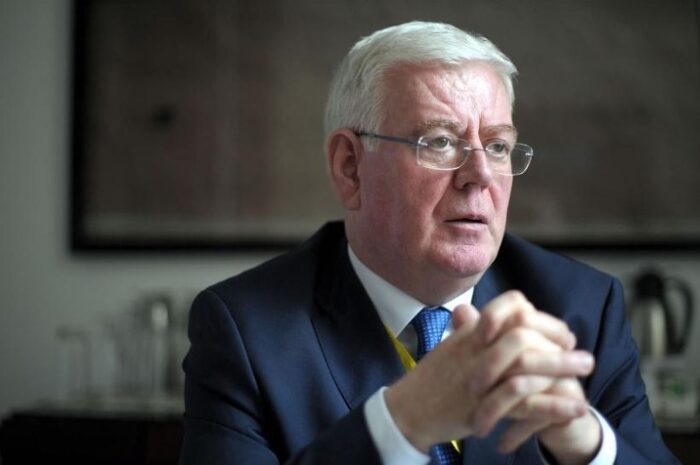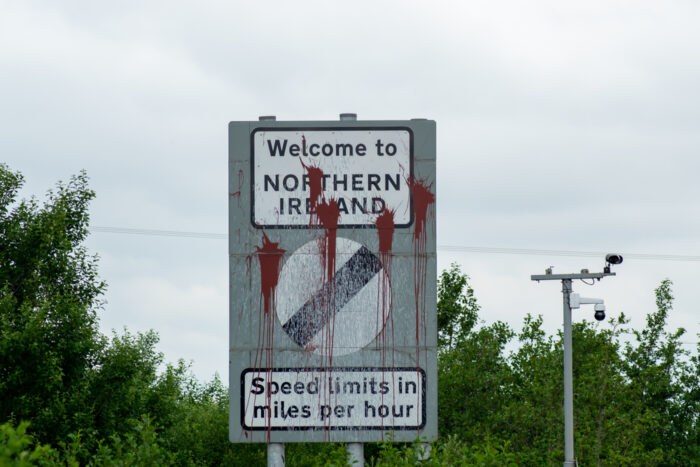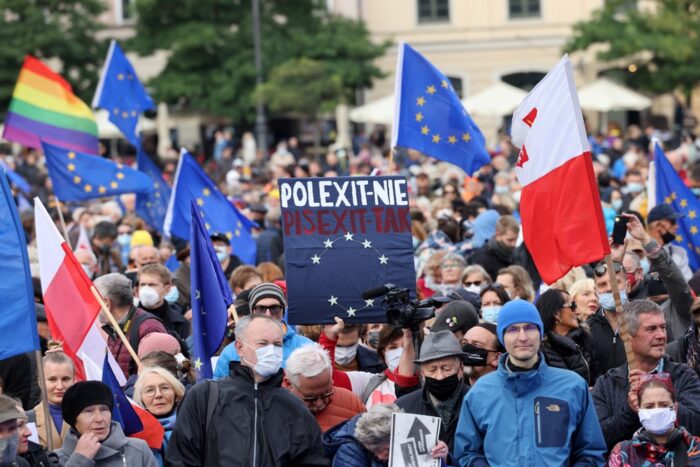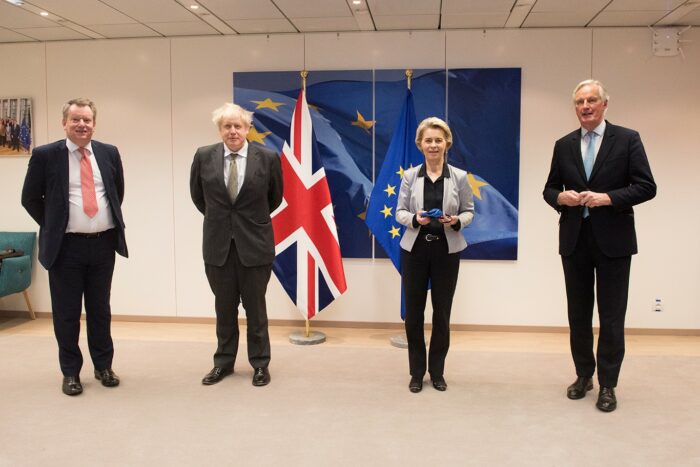The Progressive Post
Irish unity – to be pursued with care

In Belfast, 26 years ago, leaders of political parties and the governments of Ireland and the United Kingdom reached a historic agreement to end 30 years of bloody conflict in Northern Ireland. It was 10 April 1998: Good Friday. On Good Fridays since then, a simple commemoration has been hosted in the unitarian church on St. Stephen’s Green Dublin to remember all the victims of ‘the Troubles’. Members of the congregation, and guests, including myself occasionally, read out the names of the 3,600 people who were killed, most of them long forgotten, except by their families and friends.
This year, the organisers decided to discontinue the event. The last Troubles-related killing was five years ago, when Republican dissidents murdered journalist Lyra McKee. In February, after a lapse of two years, the Northern Ireland Assembly and Executive was restored. Now, even the long-standing Good Friday commemoration accepts that Northern Ireland’s violence belongs to history. Today, the Global Peace Index lists Ireland as the third most peaceful country in the world.
The greatest success of the Good Friday agreement is the legacy of peace. Political differences in Northern Ireland are now reconciled by democratic debate, and not by killing and injuring opponents. At the core of the agreement was the mutual recognition and respect for different national identities. The phrase used during the negotiations was ‘parity of esteem’. The new First Minister of Northern Ireland, Michelle O’Neill, an Irish nationalist, attended the coronation of the new British King. The deputy first minister, Emma Little Pengelly, an Ulster unionist was photographed playing the Gaelic game of hurling with schoolchildren. These are important signals from two women leaders in a society which is still deeply divided with high expectations towards the revived political institutions.
The most recent suspension of the institutions was a consequence of Brexit. It is sometimes overlooked, but the European Union played a significant role in facilitating and supporting the Good Friday agreement. In 1998, when the agreement was being negotiated, the relations between the Irish taoiseach, Bertie Ahern and the British prime minister Tony Blair were very good. However, British-Irish relations were not always so warm during the conflict. During those years, Ireland’s and the UK’s common membership of the EU provided a safe and somewhat neutral space for ministers and officials to discuss Northern Ireland. The fact that both states operated within a shared EU framework made it easier to agree on practical details, and when an agreement was reached, the EU supported the deal financially, through four successive peace programmes.
Brexit ripped that apart. The English nationalists who drove Brexit gave no attention to Northern Ireland, even though their project was clearly in conflict with the purpose and content of the Good Friday Agreement. Brexit, as we have seen recently, added a third dimension, that of EU membership, to the pre-existing divisions based on national identity and religion. Hopefully, the current fresh start for politics in Northern Ireland will eventually overcome these challenges.
One issue that Brexit has accelerated is that of Irish unity. And some commentators see the election, for the first time, of a nationalist first minister, as the harbinger of an inevitable united Ireland. But it is not as simple as that. Demographics are changing in Northern Ireland. The nationalist population is growing, while Unionist numbers are dropping. Sinn Féin is by far the most professional, politically motivated, and disciplined party on the island of Ireland. They are also the best resourced. They have eclipsed the Social Democratic and Labour Party for the support of nationalists and have emerged as the largest party, while unionism is divided. In the contest for first minister, the largest nationalist party wins the prize, provided nationalists hold more seats than unionists in the assembly.
This formula is a key provision of the Good Friday agreement, which required political parties to designate themselves as either nationalist or unionist, for the selection of first and deputy first ministers and for participation in the power-sharing executive. There was no provision for parties to define themselves as other than nationalist or unionist. Such a formula was probably necessary at the time the agreement was signed in order to facilitate power-sharing and the establishment of agreed political institutions, but it has forced politics on both sides to the more extreme options and it has stifled space for the development of politics based on social and economic, environmental or other alternatives to the traditional loyalties.
In all of that, the pursuit of Irish unity must be handled with care. Those who see it as simply a matter of holding a referendum and hoping that changing demographics will produce a pro-unity result are missing the essential requirement of persuasion and preparation. Unity will not be a matter of Northern Ireland being somehow co-opted into the southern state. Consideration has to be given to what a unified Ireland will mean, in every sense from the minimum wage and social protection to flags, anthems and political institutions. Much work is still to be done.
The Good Friday agreement has implications and lessons to be learned beyond Ireland. Around the world, we witness multiple conflicts which have their origins in ethnic, national and religious identity. Against this backdrop, Northern Ireland looks like a relative success – but one that cannot be taken for granted. And it is not a perfect agreement: no peace agreement ever is. However, ways were found to accommodate different national identities within a shared politic. New institutions, including policing, were established. Political cooperation and government co-working were developed.
At a time when so much of the world is consumed by conflict, perhaps it is time to look again at the successful peace processes of the 21st century, such as Northern Ireland. The Colombian Peace Agreement is another such successful peace process. Neither are necessarily blueprints for resolving conflicts whose origins, nature and scale are very different. But they each contain elements and similar patterns, from which those seeking to make peace in Europe, the Middle East, or further afield, can draw lessons and certainly hope and inspiration.
For much of my life, it seemed that the conflict in Northern Ireland would never end. But it did. While working in Colombia, I met many who thought the same about their country. Conflicts do not end automatically. Peace is a prize that has to be worked for. Now more than ever.
Photo credits: Shutterstock.com/ClaudioDivizia




